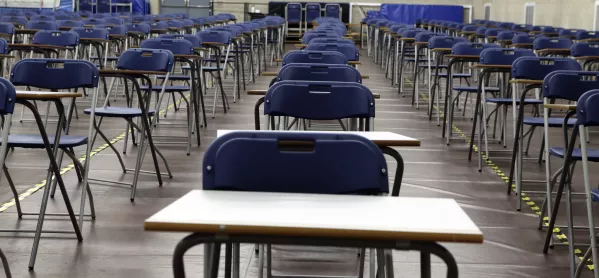GCSE results remain stable but concerns emerge over maths grades
Share
GCSE results remain stable but concerns emerge over maths grades
https://www.tes.com/magazine/archive/gcse-results-remain-stable-concerns-emerge-over-maths-grades

GCSE grades have seen another year of stability, results published today show, with a slight rise in A* to C grades for a second consecutive year.
The overall proportion of A* to C grades rose this summer by 0.2 percentage points to 69.0 per cent. A* grades were marginally down from 6.7 to 6.6 per cent, as was the -proportion of A* and A grades combined, which dropped from 21.3 per cent to 21.2 per cent.
However heads’ leaders are warning this morning that a “significant” number of schools have seen large unexpected drops in the proportion of pupils achieving good grades in maths.
Exam boards broke the results down according to age for the first time this year, revealing some disparity. The proportion of A* to C grades for 16-year-olds taking GCSEs at the end of Year 11 rose by 0.7 percentage points to 70.8 per cent, as the figure for 17-year-olds fell from 47.2 per cent to 43.5 per cent.
Government reforms led to a major drop in the number of -students being entered early and a sharp rise in the number of 17-year-olds resitting GCSEs they failed last summer.
Michael Turner, director general of the Joint Council for -Qualifications, which represents exam boards, said: “At a -national level there is very little change in this year’s results, but we do see educational policies continuing to have an -effect on entry patterns and results at a subject level. This is -particularly the case in English, maths and the sciences.”
The number of 17-year-olds taking GCSEs this summer -increased by 18.2 per cent to 309,846. Three-quarters of entries from this age group were in English and maths, which students are now required to resit if they fail in Year 11.
Results in English recovered this year after an unexpected fall in 2014. The proportion of students gaining a C grade or above rose by 3.7 percentage points to 65.4 per cent. A and A* grades were also up by 0.3 percentage points, to 14.6 per cent.
Results in maths were also up, with the proportion receiving an A* to C grade rising 0.9 percentage points to 63.3 per cent.
This year’s results show a major reduction in the number of 15-year-olds being entered for GCSEs early, after a change in the rules that means schools’ performance measures are now based on students’ first attempts at a GCSE even if they later retake it and score a higher mark. The figure was down 13.4 per cent to 423,681 across all subjects.
The number of students taking language GCSEs fell for a -second consecutive year, despite the subjects being included in the government’s English Baccalaureate (Ebac) performance measure. Entries were down in German by 9.8 per cent, in French by 6.2 per cent and in Spanish by 2.4 per cent.
Computing, which counts towards the Ebac measure, saw the biggest increase, with entries up 111 per cent to 35,414.
Overall, girls outperformed boys. The gender gap closed slightly at A* with girls’ top grades falling 0.1 percentage points to 8 per cent, as boys’ stayed the same at 5.2 per cent.
You've reached your limit of free articles this month. Subscribe for £1 per month for three months and get: